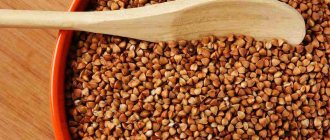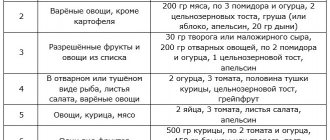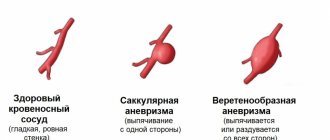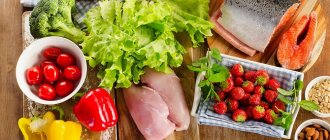Eggs are almost the main product in the diet of bodybuilders. Some of them regularly eat 20-30 pieces. in a day. Eggs are considered an ideal source of proteins in terms of amino acid profile and degree of absorption by the body. Thus, they contain amino acids with branched side chains - BCAA, and they are in the correct proportions necessary to block catabolism, breakdown of glycogen and increase muscle mass.
In addition, eggs contain balanced fats and B vitamins. The effectiveness of the egg diet for weight loss is due to the fact that the body receives a lot of protein, which takes a long time to digest and eliminates hunger. It is suppressed by ketones, which are actively produced by the liver with such a nutritional system.
Additionally, citrus fruits, which are consumed along with eggs for breakfast, suppress hunger.
They also help you lose weight:
- low calorie content of the rest of the daily diet;
- reduced amount of carbohydrates and fats;
- an abundance of unsaturated fatty acids in the diet, which burn fat;
- The body spends a lot of calories digesting proteins.
Before starting your weight loss journey, we recommend calculating your normal weight to determine whether your body weight is within the normal range.
As a bonus, eggs help strengthen joints, bones, immunity, and even improve mental performance. An even increased amount of protein is the key to fighting cellulite. The effectiveness of the diet can be enhanced if you supplement it with special exercises and products that provide an anti-cellulite effect.
We recommend:
On this topic:
The best exercises for cellulite: for the abdomen, buttocks and thighs (+ other secrets for getting rid of the “orange peel”)
And:
On this topic:
Does cellulite cream help: a review for those who have not yet understood the issue (+ ways to increase the effectiveness of the products)
Egg diet options:
- For 1 month. You can lose about 10 kg.
- For 2 week. You can lose up to 7 kg.
- For 1 week. The plumb line can be up to minus 3-4 kg.
- For 3 days. Weight loss is 2-3 kg.
General rules
The egg diet for weight loss is a type of protein-low-carbohydrate diet, the main product of which is chicken eggs. The essence of diets of this type is a sharp restriction in the diet of foods containing carbohydrates and fats with sufficient availability of foods containing protein. Among such diets for weight loss, the egg-white diet based on chicken or quail eggs occupies a special place. A chicken egg, being a low-calorie product, at the same time has a high nutritional value due to its chemical composition.
Content of basic food nutrients in chicken eggs,%
| Liquid | Minerals | Squirrels | Fats | Carbohydrates | Calorie content in 100 g of egg (kcal) |
| 74.0 | 1.08 | 12.6 | 12.2 | 0,68 | 157.0 |
The composition of egg whites includes ovalbumin , ovotransferrin , lysozyme , ovomucin , ovoglobulins , containing an optimal set of essential amino acids that are extremely important for normal human life - isoleucine , methionine , leucine , threonine , valine , histidine , phenylalanine , tryptophan . The yolk contains 2.8 g of protein, 134 mg of cholesterol , 4.50 g of fat and 0.61 g of carbohydrates. The fat composition is represented by phospholipids and triglycerides and contains both polyunsaturated (linolenic, linoleic acids) and monosaturated (oleic, palmitoleic) and saturated fatty acids (stearic, palmitic).
A chicken egg contains almost all the main macro/microelements (sodium, calcium, magnesium, phosphorus, potassium, sulfur, chlorine, copper, iodine, iron, zinc, selenium, manganese, fluorine), fat/water-soluble vitamins and provitamins ( A , E , PP , β-carotene , B1 , B6 , B12 , B2 , B5 , D , H-biotin , K , Choline ).
The chemical composition of eggs can vary within small limits and is determined by the breed of chickens, the diet of the birds, their age, and living conditions (home-grown in a confined space, home-fed in a confined space, free-range, in a poultry farm). Cooking eggs, unless an additional product (for example, oil) is introduced, does not change the chemical composition and calorie content of eggs. Only dietary eggs are used for the diet.
What is a dietary egg and how does it differ from a table egg? What can you replace eggs with?
A dietary egg is an egg whose shelf life is no more than seven days after laying. There is another group of eggs - table chicken eggs, the shelf life of which is 25 days. There are no qualitative or quantitative differences in dietary and table eggs. Eggs are the optimal source of protein among all natural products, both in content and digestibility, which is at the level of 92% and exceeds the digestibility of proteins in meat, fish and dairy products. Therefore, there is no similar substitute for eggs.
The digestibility of eggs depends on the type of cooking. Raw eggs are the worst digestible (about 50%), which is due to the presence of antitryptase trypsin inhibitor that is actively involved in the process of protein digestion. Therefore, a diet on raw eggs is not practiced. When an egg is exposed to heat, as the protein structure denatures, their digestibility increases to 92%, since structural changes in the protein allow digestive enzymes to act relatively easily on the peptide bonds of proteins. However, complete denaturation of proteins also reduces their digestibility, so there is no need to boil or fry eggs for a long time. The best option is fried eggs or soft-boiled eggs, the digestibility of which is the highest.
There are several options for the egg diet. The most strict is the mono-diet on eggs, which is based on hard-boiled eggs (up to 5 pieces per day) and a ban on the consumption of any other foods. During this diet, you are allowed to drink only unsweetened green tea and water. This diet is most often designed for 3 days or 5 days. A strict egg diet is extremely unbalanced and is psychologically difficult to tolerate. As an option for such a diet, there is an egg-grapefruit diet, in which you are allowed to eat ½ or a whole grapefruit at each meal, which accelerates fat burning.
A more popular long-term diet option is various variations of more gentle egg diets, the diet of which is allowed to include other protein foods - dietary meats, citrus fruits and fruits with minimal carbohydrate content. Thus, an egg diet for 7 days allows the inclusion of boiled or steamed dietary meat or lean fish in the diet. That is, for 7 days you are allowed to eat 200-250 g daily for lunch and at each meal, together with eggs, eat 1 orange or grapefruit.
It is the combined effect of biotin contained in chicken eggs and citric acid in citrus fruits that can significantly speed up metabolism, which leads to rapid weight loss. Therefore, the combination of eggs and citrus fruits is a must for a weekly diet. The egg diet for 1 week allows you to lose 3-4 kg of body weight. In addition, an extended weekly diet is easier to tolerate than a strict 3-day mono-diet on eggs.
The most popular option is the egg diet for 2 weeks. The menu for 2 weeks alternates foods containing protein (eggs, fish and meat) with citrus fruits (oranges, grapefruits) and non-starchy vegetables and fruits, which promotes effective and rapid breakdown of fat. With such a diet, there is practically no feeling of hunger, and the increased content of vegetables and fruits saturates the body with vitamins and macro/microelements. For an egg diet for 2 weeks it is recommended:
- Eliminate any type of fat from your diet. For dressing, it is recommended to use soy and tomato sauces or ketchups that do not contain oil.
- Eat vegetables in a variety of forms (raw, in salads, boiled or stewed) without adding oil. Season vegetable salad with lemon juice.
- Eggs can be eaten in any form (except raw) - hard-boiled, soft-boiled and fried without oil.
- Salt and sugar are completely excluded from the diet.
- Strictly observe the drinking regime - the amount of free liquid is at the level of 2 l / day, mainly in the form of herbal, fruit and green tea, rosehip decoction, non-carbonated mineral water.
- It is not permissible to replace products on the menu, you can only exclude something altogether (for example, fish for dinner on a given day).
- The diet is strict three times a day. Snacks between main meals are completely excluded.
- Dietary nutrition should be accompanied by increased physical activity within reasonable limits, since the diet contains a sufficient amount of protein.
On an egg diet, in 2 weeks, as evidenced by reviews from practitioners of such a diet, you can “lose” 5-7 kg of weight. A slightly more strict option is the egg white diet. The only difference is that the eggs are not consumed whole, but only the egg white.
The closest thing to a balanced diet is the 4-week egg diet. Her diet is further expanded by the additional inclusion of such products as low-fat cottage cheese or low-fat cheese, wholemeal bran bread, and low-fat fermented milk products without additives. Almost all vegetables (except potatoes and cauliflower) and fruits (except banana, grapes, dates) are allowed.
Fruits and vegetable dishes cover the body's need for water-soluble vitamins, and their presence in the diet improves the digestibility of animal proteins, and also normalizes the motor function of the gastrointestinal tract and intestinal biocenosis. In a more gentle version of the egg diet, it is allowed to use vegetable oil for dressing salads for a month in an amount of no more than 1 teaspoon per day.
With any version of the egg diet, the inclusion of any other foods in the diet, as well as the consumption of alcoholic beverages, is not allowed. It is recommended to take vitamin-mineral complex tablets.
During a long-term diet, it is extremely important to exit it correctly:
- In the first week after completing the egg diet course, continue to include 2 eggs and 1 orange (grapefruit) in your daily diet.
- Switch to split meals: 4-6 meals, increase portions and expand your diet gradually: first, lean red meat, cheeses, dried bread, higher-fat fermented milk products, vegetable oil, and only in the third week after the diet introduce fried, smoked and fatty foods into your diet products and dishes.
- Don't overuse sugar and salt. Maintain drinking regime.
Features of a protein diet
As the name suggests, the basis of a protein diet is protein foods. This is not only meat and milk, but also eggs, legumes, and nuts. Proteins should make up more than half of the daily diet. At the same time, fats and carbohydrates should not be excluded, but limited as much as possible.
Other principles of a protein diet:
- simple “fast” carbohydrates should be completely removed from the menu;
- It is advisable to consume mostly natural vegetable fats;
- in order not to disrupt the digestion process, vegetables rich in fiber should remain in the diet;
- During the day you need to eat fractionally, dividing the daily norm into 5-6 meals;
- If you have an abundance of protein foods, you need to do sports or physical activity every day - walk a lot, go to fitness or the gym, etc.
How it works? The main source of energy for our body is carbohydrates obtained from food. When they are not enough, our body adjusts to a new mode of operation, burning glycogen stored in the form of subcutaneous fat. The body uses up its own energy reserves.
Within seven days the effect will be noticeable - 4-5 extra kilograms will be lost. At the same time, muscle mass will remain the same due to the fact that the menu contains enough protein products to “build” and restore muscles. The greatest effect will appear after three weeks - excess weight will go away, and beautiful muscle relief will become clearly visible.
Authorized Products
The egg diet includes chicken (quail) eggs prepared in any way (hard-boiled, soft-boiled, fried eggs, egg white omelet). Citrus fruits (grapefruit, orange) are an essential product in the diet. With an expanded version of the diet, the diet includes boiled (without skin) meat of chicken, turkey or rabbit, as well as low-fat varieties of river and sea fish.
If you are on a diet for a long time, the diet includes low-fat cottage cheese and fermented milk products, low-fat cheeses, fruits and non-starchy vegetables - cucumber, asparagus, all types of cabbage (except cauliflower), green peas, garlic, spinach, onions (leeks, shallots, onions, chives), lettuce, sweet peppers, both raw, in the form of salads, and boiled, stewed and baked. For drinking you can use still table water, rosehip decoction, herbal, fruit and green teas.
Table of permitted products
| Proteins, g | Fats, g | Carbohydrates, g | Calories, kcal | |
Vegetables and greens | ||||
| eggplant | 1,2 | 0,1 | 4,5 | 24 |
| dried white cabbage | 15,0 | 1,4 | 48,0 | 278 |
| boiled broccoli | 3,0 | 0,4 | 4,0 | 27 |
| Brussels sprouts | 4,8 | 0,0 | 8,0 | 43 |
| kohlrabi cabbage | 2,8 | 0,0 | 10,7 | 42 |
| red cabbage | 0,8 | 0,0 | 7,6 | 24 |
| cabbage | 1,2 | 0,2 | 2,0 | 16 |
| savoy cabbage | 1,2 | 0,1 | 6,0 | 28 |
| watercress | 2,3 | 0,1 | 1,3 | 11 |
| red onion | 1,4 | 0,0 | 9,1 | 42 |
| bulb onions | 1,4 | 0,0 | 10,4 | 41 |
| carrot | 1,3 | 0,1 | 6,9 | 32 |
| cucumbers | 0,8 | 0,1 | 2,8 | 15 |
| salad pepper | 1,3 | 0,0 | 5,3 | 27 |
| arugula | 2,6 | 0,7 | 2,1 | 25 |
| celery | 0,9 | 0,1 | 2,1 | 12 |
| tomatoes | 0,6 | 0,2 | 4,2 | 20 |
| dill | 2,5 | 0,5 | 6,3 | 38 |
| zucchini | 1,5 | 0,2 | 3,0 | 16 |
| garlic | 6,5 | 0,5 | 29,9 | 143 |
Fruits | ||||
| grapefruit | 0,7 | 0,2 | 6,5 | 29 |
| lemons | 0,9 | 0,1 | 3,0 | 16 |
| apples | 0,4 | 0,4 | 9,8 | 47 |
Dairy | ||||
| kefir 1% | 2,8 | 1,0 | 4,0 | 40 |
Meat products | ||||
| rabbit | 21,0 | 8,0 | 0,0 | 156 |
Bird | ||||
| steamed chicken breast | 23,6 | 1,9 | 0,0 | 113 |
Eggs | ||||
| omelette | 9,6 | 15,4 | 1,9 | 184 |
| fried egg | 11,9 | 15,3 | 0,7 | 192 |
| hard-boiled chicken eggs | 12,9 | 11,6 | 0,8 | 160 |
| soft-boiled chicken eggs | 12,8 | 11,6 | 0,8 | 159 |
| chicken eggs (poached) | 12,7 | 10,9 | 1,2 | 159 |
| quail eggs | 11,9 | 13,1 | 0,6 | 168 |
Fish and seafood | ||||
| seaweed | 0,8 | 5,1 | 0,0 | 49 |
Non-alcoholic drinks | ||||
| mineral water | 0,0 | 0,0 | 0,0 | — |
| instant chicory | 0,1 | 0,0 | 2,8 | 11 |
| green tea | 0,0 | 0,0 | 0,0 | — |
Juices and compotes | ||||
| rose hip juice | 0,1 | 0,0 | 17,6 | 70 |
| * data is per 100 g of product | ||||
Egg diet for 3 days
During the fasting period, your diet should look like this:
- Breakfast: 1 egg, half a grapefruit or orange, coffee without sugar or unsweetened green tea, a slice of rye bread
- Lunch: 2 eggs, half a grapefruit or orange, tomato juice, boiled potato tuber
- Dinner: 2 eggs, tea with lemon and a spoon of honey
Specialists at Elena Morozova’s weight loss clinic cannot support their American colleagues who proposed this nutritional system, because it will inevitably lead to disturbances in the gastrointestinal tract. The developers of the dietary regime recommend eating fruits first and only then proceeding with the main courses. This approach guarantees that a person who wants to lose weight will experience fermentation and bloating. With a properly balanced diet, you should eat plant foods 1.5-2 hours after meals. This way it will benefit the body and your intestines will not be upset.
But we agree with some postulates. For example, we agree that water is a friend and helper for someone who is losing weight. For successful life, the body needs its continuous supply. Adipose tissue is a strategic reserve: from 100 g of burned fat, the body can obtain 97 g of the necessary substance.
A lack of fluid will cause the body to begin to increase its lipid reserves. The kidneys will not be able to cope with the processing and will transfer some of it to the liver, which will have no time to perform its main task - to burn subcutaneous deposits.
People who don't drink enough experience edema: the body perceives the lack of water as an emergency and begins to save every drop. Correct the situation, and then the fat and accumulated fluid will be removed.
Look at our Clients' Acknowledgments and Success Stories - View
Fully or partially limited products
The egg diet does not allow the inclusion in the diet of any red meat and products made from it (offal, bacon, sausages, canned meat, ham, sausages), animal and cooking fat, butter and vegetable oil, cereals, white rice, pasta, baked goods . All salted vegetables, smoked meats, and preserves are excluded.
The consumption of honey, sugar, jam, ice cream, chocolate, preserves, sweets and cream-containing products is prohibited. All fatty fermented milk products - sour cream, cheese, cream, kefir/ryazhenka with a high fat content - are completely excluded from the diet. The consumption of salt and alcohol-containing drinks, black tea and coffee is prohibited.
Table of prohibited products
| Proteins, g | Fats, g | Carbohydrates, g | Calories, kcal | |
Vegetables and greens | ||||
| vegetables legumes | 9,1 | 1,6 | 27,0 | 168 |
| potato | 2,0 | 0,4 | 18,1 | 80 |
Fruits | ||||
| bananas | 1,5 | 0,2 | 21,8 | 95 |
| mango | 0,5 | 0,3 | 11,5 | 67 |
Berries | ||||
| grape | 0,6 | 0,2 | 16,8 | 65 |
Mushrooms | ||||
| mushrooms | 3,5 | 2,0 | 2,5 | 30 |
Nuts and dried fruits | ||||
| nuts | 15,0 | 40,0 | 20,0 | 500 |
Snacks | ||||
| potato chips | 5,5 | 30,0 | 53,0 | 520 |
Cereals and porridges | ||||
| porridge | 3,3 | 1,2 | 22,1 | 102 |
| rice | 6,7 | 0,7 | 78,9 | 344 |
| white rice | 6,7 | 0,7 | 78,9 | 344 |
Flour and pasta | ||||
| pasta | 10,4 | 1,1 | 69,7 | 337 |
| pancakes | 6,1 | 12,3 | 26,0 | 233 |
| vareniki | 7,6 | 2,3 | 18,7 | 155 |
| pancakes | 6,3 | 7,3 | 51,4 | 294 |
Bakery products | ||||
| buns | 7,2 | 6,2 | 51,0 | 317 |
| bread | 7,5 | 2,1 | 46,4 | 227 |
Confectionery | ||||
| jam | 0,3 | 0,2 | 63,0 | 263 |
| jam | 0,3 | 0,1 | 56,0 | 238 |
| candies | 4,3 | 19,8 | 67,5 | 453 |
| cookie | 7,5 | 11,8 | 74,9 | 417 |
| cake | 3,8 | 22,6 | 47,0 | 397 |
| dough | 7,9 | 1,4 | 50,6 | 234 |
Cakes | ||||
| cake | 4,4 | 23,4 | 45,2 | 407 |
Chocolate | ||||
| chocolate | 5,4 | 35,3 | 56,5 | 544 |
Raw materials and seasonings | ||||
| seasonings | 7,0 | 1,9 | 26,0 | 149 |
| mayonnaise | 2,4 | 67,0 | 3,9 | 627 |
| honey | 0,8 | 0,0 | 81,5 | 329 |
Dairy | ||||
| milk | 3,2 | 3,6 | 4,8 | 64 |
| condensed milk | 7,2 | 8,5 | 56,0 | 320 |
Cheeses and cottage cheese | ||||
| cheese | 24,1 | 29,5 | 0,3 | 363 |
| cottage cheese 18% (fat) | 14,0 | 18,0 | 2,8 | 232 |
Meat products | ||||
| fatty pork | 11,4 | 49,3 | 0,0 | 489 |
| pork fat | 1,4 | 92,8 | 0,0 | 841 |
| salo | 2,4 | 89,0 | 0,0 | 797 |
Sausages | ||||
| boiled sausage | 13,7 | 22,8 | 0,0 | 260 |
| smoked sausage | 28,2 | 27,5 | 0,0 | 360 |
| smoked sausage | 9,9 | 63,2 | 0,3 | 608 |
| sausages | 10,1 | 31,6 | 1,9 | 332 |
| sausages | 12,3 | 25,3 | 0,0 | 277 |
Bird | ||||
| smoked chicken | 27,5 | 8,2 | 0,0 | 184 |
| duck | 16,5 | 61,2 | 0,0 | 346 |
| goose | 16,1 | 33,3 | 0,0 | 364 |
Eggs | ||||
| eggs | 12,7 | 10,9 | 0,7 | 157 |
Fish and seafood | ||||
| fish | 18,5 | 4,9 | 0,0 | 136 |
| salted fish | 19,2 | 2,0 | 0,0 | 190 |
| caviar | 36,0 | 10,2 | 0,0 | 123 |
| canned fish | 17,5 | 2,0 | 0,0 | 88 |
| semi-finished fish products | 12,5 | 6,7 | 14,7 | 209 |
Oils and fats | ||||
| butter | 0,5 | 82,5 | 0,8 | 748 |
| creamy margarine | 0,5 | 82,0 | 0,0 | 745 |
| coconut oil | 0,0 | 99,9 | 0,0 | 899 |
| animal fat | 0,0 | 99,7 | 0,0 | 897 |
| cooking fat | 0,0 | 99,7 | 0,0 | 897 |
Alcoholic drinks | ||||
| white dessert wine 16% | 0,5 | 0,0 | 16,0 | 153 |
| vodka | 0,0 | 0,0 | 0,1 | 235 |
| cognac | 0,0 | 0,0 | 0,1 | 239 |
| liquor | 0,3 | 1,1 | 17,2 | 242 |
| beer | 0,3 | 0,0 | 4,6 | 42 |
Non-alcoholic drinks | ||||
| cola | 0,0 | 0,0 | 10,4 | 42 |
| coffee | 0,2 | 0,0 | 0,3 | 2 |
| Pepsi | 0,0 | 0,0 | 8,7 | 38 |
| sprite | 0,1 | 0,0 | 7,0 | 29 |
| energy drink | 0,0 | 0,0 | 11,3 | 45 |
| * data is per 100 g of product | ||||
Menu (Power Mode)
The egg diet menu is determined by a set of permitted/prohibited foods. Three meals a day without additional snacks. Below is the weekly menu for reference:
Monday
| Breakfast |
|
| Dinner |
|
| Dinner |
|
Tuesday
| Breakfast |
|
| Dinner |
|
| Dinner |
|
Wednesday
| Breakfast |
|
| Dinner |
|
| Dinner |
|
Thursday
| Breakfast |
|
| Dinner |
|
| Dinner |
|
Friday
| Breakfast |
|
| Dinner |
|
| Dinner |
|
Saturday
| Breakfast |
|
| Dinner |
|
| Dinner |
|
Sunday
| Breakfast |
|
| Dinner |
|
| Dinner |
|
The menu for 2 weeks repeats the seven-day menu. In the second week, you can additionally include unsweetened fruits.
Omelette recipe
The main disadvantage of a protein diet on eggs, therefore, is considered to be some monotony of the diet. To make the process of losing weight using this technique more enjoyable, you can try cooking according to original recipes. This will help diversify the taste sensations. Next, consider, as an example, a recipe for preparing a tasty and low-calorie omelet.
Ingredients:
- some low-calorie cheese;
- 2 eggs;
- chopped greens.
Eggs need to be beaten into a clean bowl and beaten with a fork. Next, add chopped herbs and finely grated cheese to the resulting mixture. The egg mass prepared in this way should be placed in the microwave for 5 minutes.
Recipes for dietary egg dishes
Dietary egg dishes are extremely simple dishes that do not require special knowledge or cooking skills. There are not many of them and you can get acquainted with some of them below.
How to cook a diet omelet
In order for those who are on an egg diet not to have questions “is it possible to eat scrambled eggs or is it possible to eat an omelet while on a diet”, we answer, yes, it is possible if it is prepared correctly. To do this, prepare a dietary version of an omelet or fried egg.
Diet omelette in the oven
2 eggs, water. Beat the eggs with a fork, add water at a ratio of one teaspoon of water per egg. Beat again. Pour into a mold and place in the oven, preheated to a temperature of 180-2000 C. During the cooking process, the oven must not be opened, otherwise the omelette will not be fluffy. To ensure that the omelette has a crust and is well baked, cover the pan with parchment before putting it in the oven and remove it after the dish has cooled. If you need to add additional ingredients to the omelette (vegetables, garden herbs, spices), add them to the beaten egg mass.
An omelet can be prepared in the microwave in the same way. To do this, place the beaten egg mass in the microwave for 3-5 minutes at medium power.
Diet scrambled eggs
It's even easier to prepare. Pre-break the eggs without damaging the yolk and place each in a separate tea cup. Pour 2 tablespoons of water into a heated frying pan with a thick bottom, and after it boils (at the stage of large bubbles), carefully move the eggs into the frying pan and immediately turn off the heat. Cover the frying pan with a lid (plate) and place in an oven preheated to 180 degrees for 3 minutes. Remove, sprinkle with herbs and spices to taste.
Stabilization of the result
So, losing weight by 15 kg or more on an egg diet is quite possible. The body will receive very little fat and carbohydrates during this course. Therefore, after the end of fasting, a person losing weight may have a desire to eat “from the heart.” This should not be done under any circumstances. Otherwise, all four weeks of effort will be wasted.
After finishing the 28-day protein egg diet, you should definitely consolidate the achieved result. To do this, for some time in the future you should adhere to the following rules:
- take food in small portions 6 times a day;
- do not eat high-calorie foods for 2 weeks;
- eat more vegetables and fruits;
- replace snacks with water and herbal tea;
- do not overeat;
- limit the amount of confectionery and baked goods you eat;
- control the amount of salt and spices in dishes;
- drink 200 g of kefir every day at night;
- do not eat 3 hours before bedtime.
And of course, after completing the diet for 28 days, you should lead an active lifestyle and exercise regularly. You can, for example, do yoga, gymnastics, swimming.
Advantages and disadvantages
| pros | Minuses |
|
|
Comments from nutritionists
The main products of the egg diet (chicken egg and citrus fruits - grapefruit, orange) are highly allergenic foods. Therefore, those who have a tendency to allergic reactions need to abandon such a diet or be wary and stop the diet at the slightest allergic reaction. In order to reduce the risk of an allergic reaction, it is recommended:
- Wash citrus fruits thoroughly under hot water, since specific hypersensitivity often develops to chemicals used in the processing of citrus fruits to extend shelf life and preserve their presentation - waxes, biphenyl, paraffins, antiseptics, sulfur dioxide and fungicides used to protect against pests.
- Do not overuse citrus fruits and chicken eggs in your diet, since many people experience a “dose-dependent” pseudo-allergic type of food intolerance. That is, an allergic reaction occurs when a threshold that is significant for a particular organism is reached (the number of citrus fruits or eggs eaten).
- The egg diet must be accompanied by increased physical activity. Otherwise, weight loss results may be less than expected.
Side effects and contraindications
The egg diet for a week is not suitable for everyone, because it is fast, unbalanced and requires special endurance. If there are any restrictions, it is necessary to interrupt the diet or not start it at all, otherwise it can cause serious complications or side effects.
Side effects:
- Constipation;
- Irritability;
- Fatigue;
- Weakness;
Contraindications:
- The weekly egg diet is not recommended during pregnancy and lactation.
- People who are allergic to eggs and citrus fruits should not choose this diet.
- In case of chronic diseases of the kidneys, liver, or gastrointestinal tract, before any diet, be sure to consult with your doctor.
- If you have high cholesterol levels, you need to be careful, because egg yolks contain cholesterol and consuming them in large quantities can be harmful to health.
Egg diet: reviews and results
Reviews of the egg diet for 2 weeks among those who practiced it, as well as the results, vary significantly. Some who have achieved good results even present photos of the results and describe the whole process in detail to confirm their words.
- “... The diet is just super! We have been practicing it with our friends for the third year now. So to speak, it’s more fun together, and we support each other psychologically. We try to choose the summer months to lose weight on eggs, since in winter it is more difficult to tolerate. Once we tried to eat only egg whites, but it was more difficult to maintain such a diet. We are satisfied with the results. On average, we lost 5-7 kg in two weeks. I present our photos before and after the diet. I think this is a clear example of the effectiveness of the diet. Besides, there were no difficulties for us.”
- “...The egg diet may be good, but it’s certainly not suitable for everyone. I ate strictly soft-boiled eggs, because I didn’t know for sure whether it was possible to eat boiled eggs on a diet with grapefruits. Lasted only 4 days. On day 5, I started having hunger pains in my stomach and became constipated. I decided that this diet was not suitable for me and began to carefully exit it. I lost 3 kg, but I decided for myself that such a diet was the first and last time. Dissatisfaction, strong feeling of hunger, weakness, constipation, bad mood. I saw those who were on this diet. She seems to have lost weight, but she looks terrible, her skin is sagging, her face is gray and haggard. No, I’d rather watch my diet and actively engage in aerobics in the water and move more than to torment my body like this by periodically going on some kind of diet.”
How to get out of a diet correctly
The end of the diet does not at all imply the onset of a “belly festival”. You need to exit the diet wisely. Within a week, the body has become accustomed to monotonous food, so you need to return to a balanced, varied diet gradually. For several weeks, you should continue to regularly consume eggs, citrus fruits, lean meats, and dairy products. It is advisable not to increase the portions or, at least, do it gradually. The period after leaving the diet is important, because if you do not follow the regime, you risk not only regaining the lost kilograms, but also gaining new ones.









